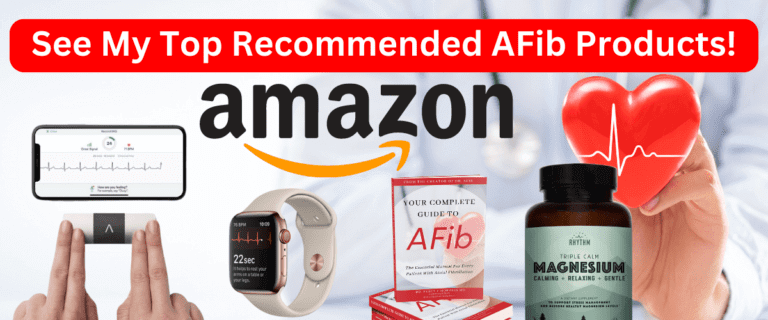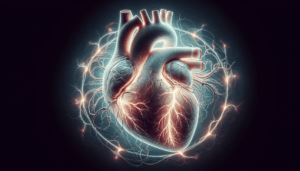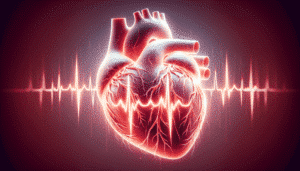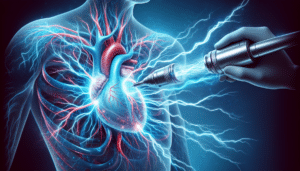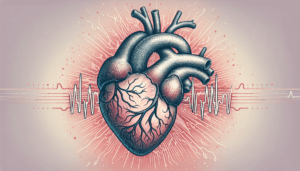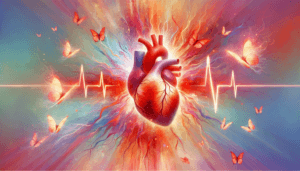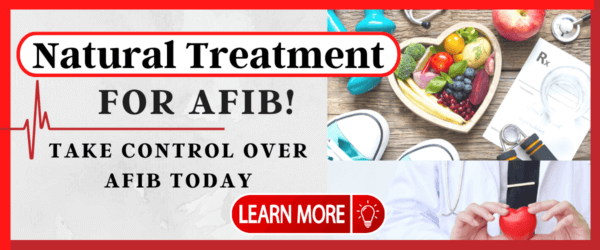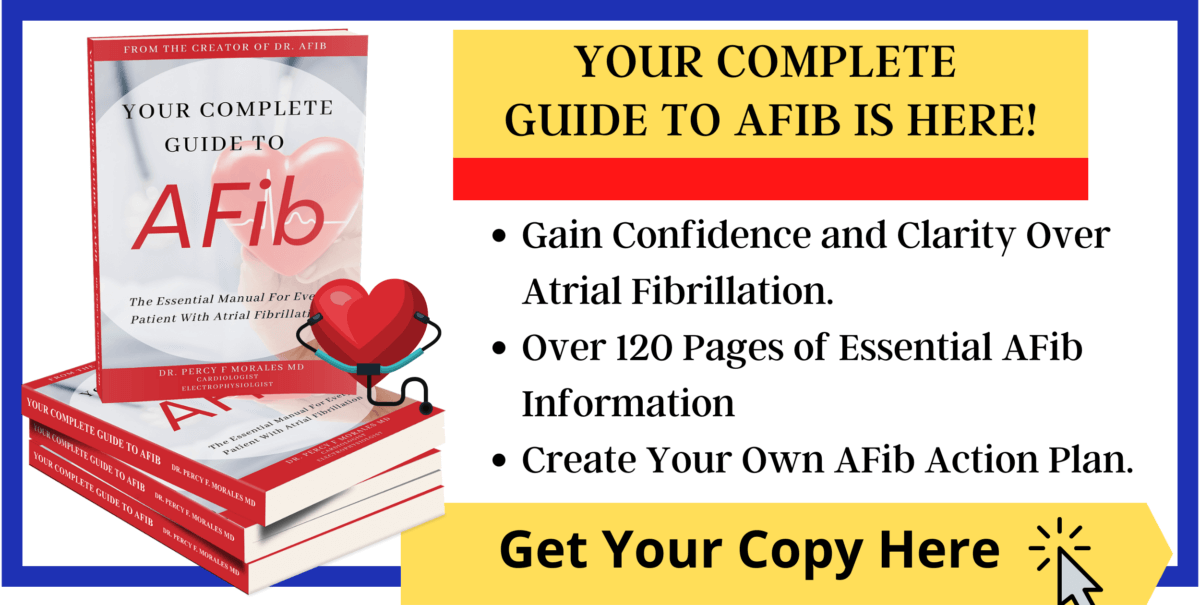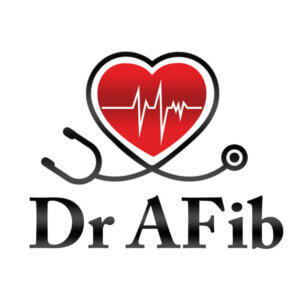Are you curious about the relationship between caffeine and AFib? Join us as we unravel the effects of caffeine on AFib risk, exploring topics such as coffee, energy drinks, and lifestyle factors related to caffeine and AFib. Discover the potential benefits and drawbacks of caffeine consumption and learn how to manage your intake for optimal heart health.
Key Takeaways
Understanding the potential effects of caffeine consumption on Atrial Fibrillation
Individuals with AFib should limit their daily caffeine intake to 300 mg or less and consult a healthcare professional for personalized advice.
Working with your doctor to create a tailored caffeine strategy is essential to ensure optimal heart health and reduce the risk of AFib episodes.
Understanding Atrial Fibrillation and Caffeine Consumption

Atrial fibrillation (AFib) is a common heart rhythm disorder that can lead to stroke, heart failure, and other cardiovascular complications. Given the worldwide daily consumption of caffeine, grasping its potential effects on AFib becomes necessary.
What Is AFib?
AFib is the most prevalent heart arrhythmia wroldwide, affecting approximately 1% to 2% of the general population. AFib is characterized by irregular and accelerated heartbeats and increases the risk of stroke and heart failure. The primary symptoms associated with AFib include:
a quivering heartbeat
fatigue
heart palpitations
difficulty breathing
dizziness
an uneven pulse
To identify AFib, healthcare providers may conduct blood tests, physical exams, and electrocardiograms (EKGs) to assess a patient’s medical history, family history, and heart rhythm.
Caffeine’s Role in Cardiovascular Health
Caffeine, a stimulant present in a variety of drinks and edibles, influences cardiovascular health in multifaceted ways. Its impact on heart rhythm and overall health depends on factors such as dosage and individual sensitivity. Common sources of caffeine include:
Coffee
Tea
Chocolate bars
Soft drinks
Energy drinks
The immediate effects of caffeine on heart rate have been debated, with research producing conflicting results. While moderate caffeine consumption is typically deemed heart-friendly, excessive intake could elevate blood pressure, courtesy of its stimulatory effects on the nervous system. Some short-term studies have also demonstrated that caffeine ingestion can lead to cardiac arrhythmias, emphasizing the importance of consuming caffeine in moderation.
The Heart of the Matter: Coffee Intake and AFib Risk

The link between coffee intake and AFib risk has been the subject of a few studies, with some suggesting a protective effect of moderate consumption, while others show no significant association.
It’s worth evaluating the possible advantages and disadvantages of coffee consumption concerning AFib risk.
Moderate Coffee Consumption: Can It Be Protective?
Recent research suggests that moderate coffee consumption (1-3 cups per day) may be associated with a lower risk of AFib. For instance, a study revealed a reduced risk of AFib among men consuming 1 to 3 cups of coffee daily. Nevertheless, additional research is required to validate this outcome.
On the other hand, some studies have not found a significant association between coffee consumption and AFib risk.
When Coffee Might Cause Concern
High doses of caffeine from coffee or other sources may exacerbate AFib symptoms in some individuals, particularly those with a history of heart rhythm disorders. While research has not established a direct causal relationship between caffeine and AFib, it’s essential for individuals with heart conditions or AFib to monitor their caffeine intake and be aware of its potential impact on their symptoms.
The American College of Cardiology recommend that individuals with AFib limit their daily caffeine intake to no more than 300 mg. By working closely with your doctor, you can develop a personalized caffeine strategy that takes into account your specific needs and medical history.
Added Sugar, Whipped Cream, and Artificial Sweeteners in Coffee: Increased AFib Risk and Caloric Intake
When it comes to coffee, it’s not just the caffeine we need to monitor. The extras we often add, such as added sugars, whipped cream, and artificial sweeteners, can also play a role in AFib and overall health. These additions can not only increase the caloric value of your coffee but may also have potential effects on heart rhythm and AFib risk. It’s crucial to be mindful of these additions and consider their potential impact on your heart health.
Energy Drinks and Their Impact on Heart Rhythm

Energy drinks, favored by those in need of an instant energy surge, require further investigation due to their effect on heart rhythm. These beverages typically contain a mix of:
Caffeine
Guarana
Taurine
Other stimulants
Added Sugar
These ingredients can have a synergistic effect and may increase the risk of AFib in susceptible individuals.
Beyond Caffeine: Additional Stimulants in Energy Drinks
In addition to caffeine, energy drinks often contain other stimulants, such as guarana and taurine. Guarana, which contains a substance similar to caffeine called guaranine, has been known to cause an increase in heart rate and potentially abnormal heart rhythms. Taurine has various beneficial effects on the cardiovascular system, but its combined effect with caffeine on the heart has not been extensively studied.
In addition, energy drinks may contain added sugars or artificial sweeteners which may also contribute to AFib risk with these drinks.
Consequently, caution is advised while consuming energy drinks, particularly if you have a prior history of heart rhythm disorders or AFib. Consult with your healthcare provider for personalized advice on the potential risks and benefits of energy drink consumption.
Navigating Caffeinated Beverages: Dos and Don’ts

Maintaining optimal heart health, which is crucial in preventing cardiovascular disease, necessitates adherence to safe caffeine consumption limits, as consuming caffeinated beverages increased may pose risks. Exploration of alternative beverages and consultation with healthcare professionals are also recommended.
In this section, we discuss safe limits for caffeine intake and present alternatives to caffeinated drinks.
Safe Limits for Caffeine Intake
The general daily safe limit for caffeine intake for an average adult is no more than 400 milligrams, according to the FDA. For individuals with AFib, it’s recommended to limit their daily caffeine intake to no more than 300 mg, per the American College of Cardiology. Your healthcare provider can offer personalized advice on caffeine consumption based on your specific needs and medical history.
It’s important to monitor your caffeine intake and be aware of any changes in your symptoms. If you experience difficulty sleeping, elevated heart rate, or other symptoms after consuming caffeine, consult with your healthcare provider to adjust your plan accordingly.
Alternatives to Caffeinated Drinks
If you’re looking to reduce your caffeine consumption, consider trying decaffeinated coffee, herbal teas, or caffeine-free soft drinks as alternatives. Decaffeinated coffee offers various health benefits, such as reducing the risk of Type 2 diabetes and certain neurodegenerative diseases. Popular herbal teas that are caffeine-free include chamomile tea, lemon ginger tea, rooibos tea, hibiscus tea, and chaga tea. These herbal teas offer a range of health benefits, from boosting the immune system to reducing inflammation and promoting relaxation.
Popular brands of caffeine-free soft drinks include:
7UP
Sprite
Fanta
Slice
Minute Maid
Hank’s Root Beer
Pepsi Caffeine Free
A&W Root Beer
Diet Coke Caffeine Free
By exploring these alternatives, you can enjoy flavorful beverages without the potential risks associated with excessive caffeine intake.
Lifestyle Factors: Alcohol, Stress, Sleep, and AFib
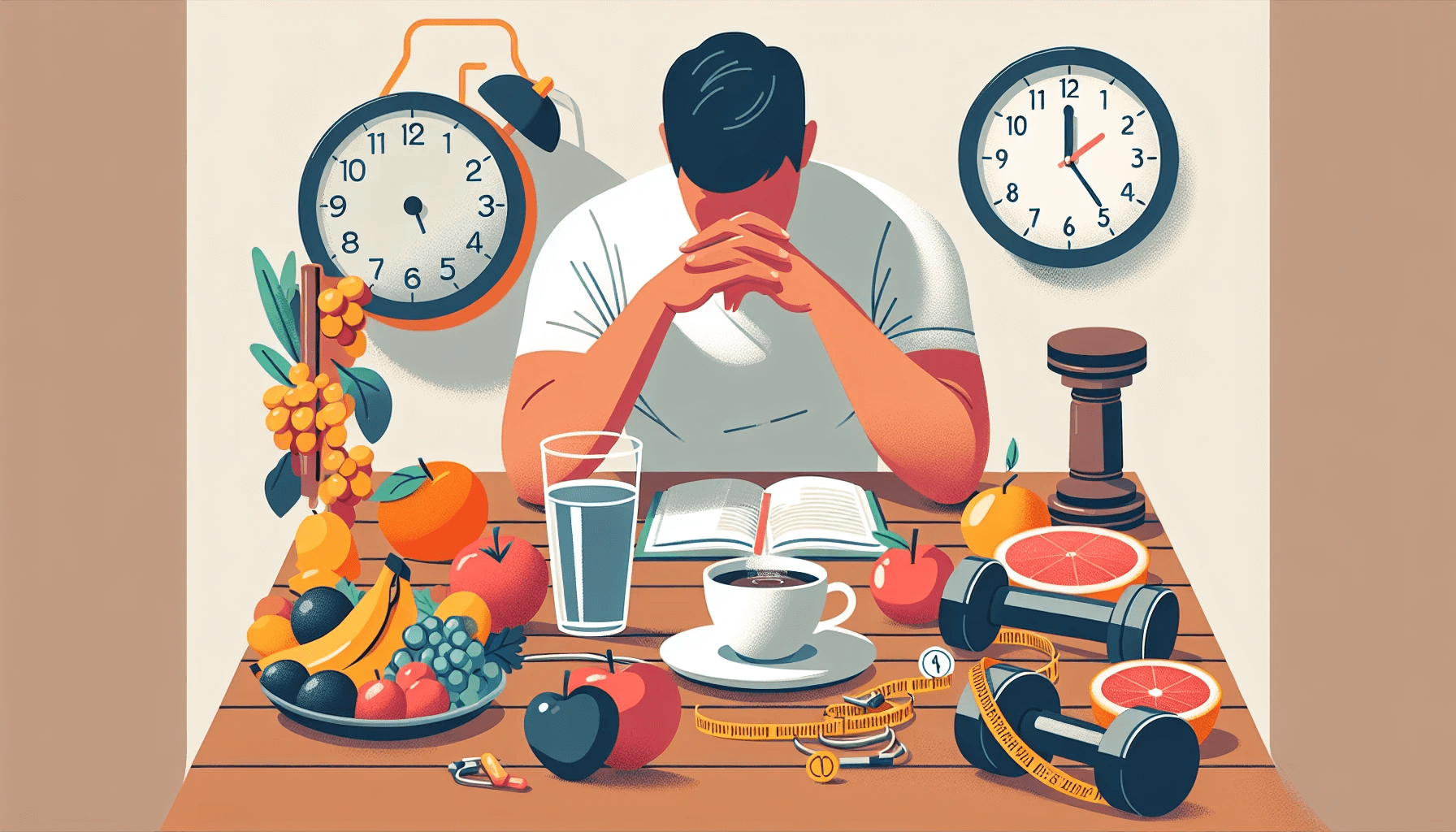
Lifestyle factors significantly influence the management of AFib symptoms. Alcohol, stress, and poor sleep, can significantly impact AFib risk. In addition, many patients will find themselves with increased caffeine use during periods of stress or poor sleep which will increase risk for atrial fibrillation.
Evaluating the influence of these lifestyle factors on AFib is worthwhile, as it helps in understanding the morbidity and risk factors associated with the condition, including additional risk factors that may be present.
The Effects of Alcohol on AFib
Moderate to high alcohol intake can increase the risk of AFib, particularly in older individuals. Research has established that alcohol has an immediate influence on heart rhythm and can significantly raise the risk of atrial fibrillation (AFib). Even modest alcohol consumption, such as one to three drinks a day, can increase the probability of developing AFib, and heavy drinking further amplifies this risk.
Limiting or abstaining from alcohol is necessary if you have a history of AFib or concerns about your heart health. Consult with your healthcare provider for personalized advice on alcohol consumption and its potential impact on your AFib risk.
Stress and AFib: Understanding the Connection
Stress can exacerbate AFib symptoms and may increase the risk of heart rhythm disturbances. Chronic stress has been linked to the onset and progression of atrial fibrillation (AFib). It can act as a trigger and modify various pathways that lead to AFib. Furthermore, stress can worsen any underlying conditions that lead to AFib, such as high blood pressure.
Effective stress management is key to reducing the risk of AFib episodes. This may include engaging in relaxation techniques, practicing mindfulness, or seeking professional support from a mental health professional. Consult with your healthcare provider for personalized advice on managing stress and its potential impact on your AFib risk.
Sleep Quality and AFib: The Connection Between Sleep Apnea and Increased AFib Risk
Poor sleep quality and sleep apnea can significantly contribute to the risk of developing atrial fibrillation (AFib). Sleep apnea, a common sleep disorder characterized by repeated interruptions in breathing during sleep, has been linked to a higher prevalence of AFib. These interruptions can cause changes in blood pressure and heart rate, leading to stress on the heart and potentially triggering AFib episodes. Therefore, managing sleep quality and treating sleep apnea are essential steps in reducing the risk of AFib and maintaining heart health.
Decoding Research: Studies on Caffeine and AFib
Mixed results have emerged from research on caffeine and AFib, with some studies hinting at a protective effect of moderate coffee consumption and others finding no noticeable link.
In this section, we will decode recent studies on caffeine and AFib and discuss the broader context of caffeine consumption from various sources.
Interpreting the Data: What Recent Studies Say
Recent studies have produced mixed results on the relationship between caffeine and AFib. Some studies suggest a protective effect of moderate coffee consumption, while others find no significant association. For example, a study revealed a reduced risk of AFib among men consuming 1 to 3 cups of coffee daily. On the other hand, a food frequency questionnaire study in the Physicians’ Health Study found no significant association between coffee intake and AFib.
It’s important to recognize that the overall impact of caffeine on AFib risk may depend on the source of caffeine, with coffee, tea, and chocolate bars potentially having different effects on heart rhythm.
The Big Picture: Coffee, Tea, and Chocolate Bars
The overall impact of caffeine on AFib risk may depend on the source of caffeine. For example, research has indicated that regular caffeine consumption from tea does not appear to be associated with an increased risk of atrial fibrillation (AFib). In fact, some studies suggest that caffeine may have a beneficial effect on cardiovascular health.
Moderate consumption of chocolate has been associated with a decreased risk of atrial fibrillation (AFib). No link has been established between caffeine from chocolate bars and AFib risk. As a result, understanding the potential impact of caffeine on AFib risk requires considering the source of caffeine and its specific effects on heart rhythm. It is possible that the anti-oxidants found particularly in dark chocolate provide a protective effect in reducing atrial fibrillation.
Personalized Advice: Consulting with Healthcare Professionals
When it comes to managing caffeine intake for individuals with AFib, personalized advice from healthcare professionals is of utmost importance. It’s crucial to develop a caffeine strategy tailored to your specific needs and medical history, taking into account any potential interactions with medications or treatments.
Crafting Your Caffeine Strategy with Your Doctor
Consult with your doctor to develop a caffeine strategy tailored to your specific needs and medical history. This may include discussing your caffeine intake, dietary habits, and any potential interactions with medications or treatments.
Collaborating closely with your doctor will help you create a personalized caffeine plan tailored to your specific needs, medical history, and caffeine tolerance. This will help ensure optimal heart health and minimize the risk of AFib episodes.
Monitoring and Adjusting Your Plan
Regularly monitor and adjust your caffeine consumption plan in consultation with your healthcare provider to ensure optimal heart health. By staying alert and modifying your plan when necessary, you can regulate your caffeine intake and sustain a healthy heart rhythm, without causing factors that may raise blood pressure.
Summary
In conclusion, understanding the relationship between caffeine and AFib is essential for maintaining heart health. By staying informed, consulting with healthcare professionals, and developing a personalized caffeine strategy, you can ensure that your caffeine consumption supports a healthy heart rhythm and minimizes the risk of AFib episodes.
Frequently Asked Questions
Does caffeine make atrial fibrillation worse?
Studies have not conclusively demonstrated that caffeine makes atrial fibrillation worse. Researchers suggest that normal amounts of caffeine are safe for arrhythmic patients, and may even be beneficial. However, the effects of caffeine can vary between people, so it is best to consult your doctor before consuming it.
What should I eat if I have atrial fibrillation?
To reduce your risk of atrial fibrillation, aim to eat a heart-healthy diet with plenty of fruits, vegetables, whole grains, low-fat or fat-free dairy products, lean proteins, and foods low in salt, added sugars, saturated fat and trans fat.
Can you drink alcohol with atrial fibrillation?
It is generally not recommended to drink alcohol if you have atrial fibrillation, as studies suggest it can increase risk of AFib episodes and also carries the risk of increasing bleeding if you are taking blood thinners. Therefore, it may be safest to avoid alcohol or limit it to occasional drinks on special occasions.
The Best Atrial Fibrillation Book
Your Complete Guide To AFib: The Essential Manual For Every Patient With Atrial Fibrillation

Shop AFib Products on Amazon
KardiaMobile 6-Lead Personal EKG Monitor – Six Views of The Heart – Detects AFib and Irregular Arrhythmias – Instant Results in 30 Seconds – Works with Most Smartphones - FSA/HSA Eligible
13% Off
KardiaMobile 1-Lead Personal EKG Monitor – Record EKGs at Home – Detects AFib and Irregular Arrhythmias – Instant Results in 30 Seconds – Easy to Use – Works with Most Smartphones - FSA/HSA Eligible
$79.00 (as of June 3, 2025 06:08 GMT -06:00 - More infoProduct prices and availability are accurate as of the date/time indicated and are subject to change. Any price and availability information displayed on [relevant Amazon Site(s), as applicable] at the time of purchase will apply to the purchase of this product.)
Apple Watch Series 9 [GPS 41mm] Smartwatch with Storm Blue Aluminum Case with Silver Sport Band M/L. Fitness Tracker, Blood Oxygen & ECG Apps, Always-On Retina Display
(as of June 3, 2025 07:32 GMT -06:00 - More infoProduct prices and availability are accurate as of the date/time indicated and are subject to change. Any price and availability information displayed on [relevant Amazon Site(s), as applicable] at the time of purchase will apply to the purchase of this product.)
Fitbit Sense 2 Advanced Health and Fitness Smartwatch with Tools to Manage Stress and Sleep, ECG App, SpO2, 24/7 Heart Rate and GPS, Shadow Grey/Graphite, One Size (S & L Bands Included)
20% Off
OMRON 2-in-1 Upper Arm Blood Pressure Monitor & 1-Lead EKG Monitor - Clinically Validated Blood Pressure Arm Cuff & Machine - Use OMRON Connect App
17% Off
Samsung Galaxy Watch 6 44mm Bluetooth Smartwatch, Fitness Tracker, Personalized HR Zones, Advanced Sleep Coaching, Heart Monitor, BIA Sensor, Health Wellness Insights, Big Screen, US Version, Graphite
52% Off $329.99 (as of June 3, 2025 06:08 GMT -06:00 - More infoProduct prices and availability are accurate as of the date/time indicated and are subject to change. Any price and availability information displayed on [relevant Amazon Site(s), as applicable] at the time of purchase will apply to the purchase of this product.)
Natural Rhythm Triple Calm Magnesium 150 mg - 120 Capsules – Magnesium Complex Compound Supplement with Magnesium Glycinate, Malate, and Taurate. Calming Blend for Promoting Rest and Relaxation.
$20.77 ($0.17 / Count) (as of June 3, 2025 06:08 GMT -06:00 - More infoProduct prices and availability are accurate as of the date/time indicated and are subject to change. Any price and availability information displayed on [relevant Amazon Site(s), as applicable] at the time of purchase will apply to the purchase of this product.)
Pure Encapsulations Magnesium (Glycinate) - Supplement to Support Stress Relief, Sleep, Heart Health, Nerves, Muscles, and Metabolism* - with Magnesium Glycinate - 180 Capsules
$44.60 ($0.25 / Count) (as of June 3, 2025 07:32 GMT -06:00 - More infoProduct prices and availability are accurate as of the date/time indicated and are subject to change. Any price and availability information displayed on [relevant Amazon Site(s), as applicable] at the time of purchase will apply to the purchase of this product.)
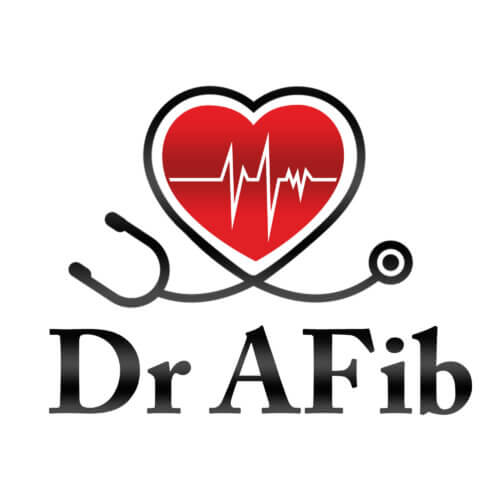
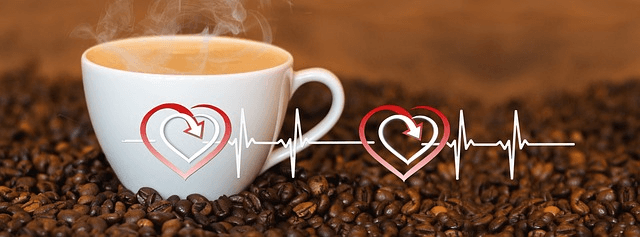













![Apple Watch Series 9 [GPS 41mm] Smartwatch with Storm Blue Aluminum Case with Silver Sport Band M/L. Fitness Tracker, Blood Oxygen & ECG Apps, Always-On Retina Display #1](https://m.media-amazon.com/images/I/311xwtp4mFL._SL100_.jpg)
![Apple Watch Series 9 [GPS 41mm] Smartwatch with Storm Blue Aluminum Case with Silver Sport Band M/L. Fitness Tracker, Blood Oxygen & ECG Apps, Always-On Retina Display #2](https://m.media-amazon.com/images/I/41j+8AaUGsL._SL100_.jpg)
![Apple Watch Series 9 [GPS 41mm] Smartwatch with Storm Blue Aluminum Case with Silver Sport Band M/L. Fitness Tracker, Blood Oxygen & ECG Apps, Always-On Retina Display #3](https://m.media-amazon.com/images/I/41jIyxZitnL._SL100_.jpg)
![Apple Watch Series 9 [GPS 41mm] Smartwatch with Storm Blue Aluminum Case with Silver Sport Band M/L. Fitness Tracker, Blood Oxygen & ECG Apps, Always-On Retina Display #4](https://m.media-amazon.com/images/I/41IpNJERjCL._SL100_.jpg)
![Apple Watch Series 9 [GPS 41mm] Smartwatch with Storm Blue Aluminum Case with Silver Sport Band M/L. Fitness Tracker, Blood Oxygen & ECG Apps, Always-On Retina Display #5](https://m.media-amazon.com/images/I/31o17yhfYpL._SL100_.jpg)




























